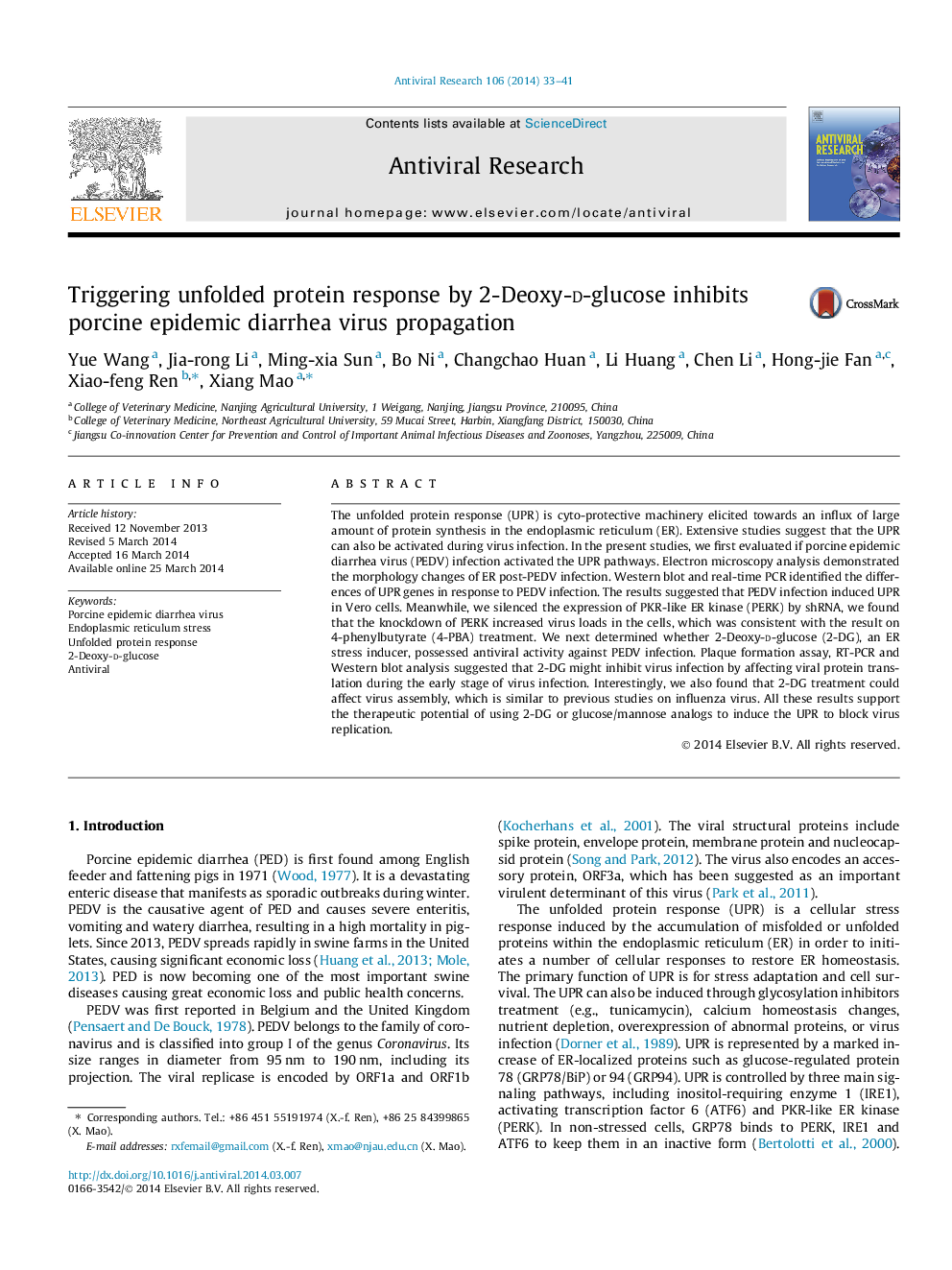| Article ID | Journal | Published Year | Pages | File Type |
|---|---|---|---|---|
| 5822156 | Antiviral Research | 2014 | 9 Pages |
Abstract
The unfolded protein response (UPR) is cyto-protective machinery elicited towards an influx of large amount of protein synthesis in the endoplasmic reticulum (ER). Extensive studies suggest that the UPR can also be activated during virus infection. In the present studies, we first evaluated if porcine epidemic diarrhea virus (PEDV) infection activated the UPR pathways. Electron microscopy analysis demonstrated the morphology changes of ER post-PEDV infection. Western blot and real-time PCR identified the differences of UPR genes in response to PEDV infection. The results suggested that PEDV infection induced UPR in Vero cells. Meanwhile, we silenced the expression of PKR-like ER kinase (PERK) by shRNA, we found that the knockdown of PERK increased virus loads in the cells, which was consistent with the result on 4-phenylbutyrate (4-PBA) treatment. We next determined whether 2-Deoxy-d-glucose (2-DG), an ER stress inducer, possessed antiviral activity against PEDV infection. Plaque formation assay, RT-PCR and Western blot analysis suggested that 2-DG might inhibit virus infection by affecting viral protein translation during the early stage of virus infection. Interestingly, we also found that 2-DG treatment could affect virus assembly, which is similar to previous studies on influenza virus. All these results support the therapeutic potential of using 2-DG or glucose/mannose analogs to induce the UPR to block virus replication.
Keywords
Related Topics
Life Sciences
Immunology and Microbiology
Virology
Authors
Yue Wang, Jia-rong Li, Ming-xia Sun, Bo Ni, Changchao Huan, Li Huang, Chen Li, Hong-jie Fan, Xiao-feng Ren, Xiang Mao,
